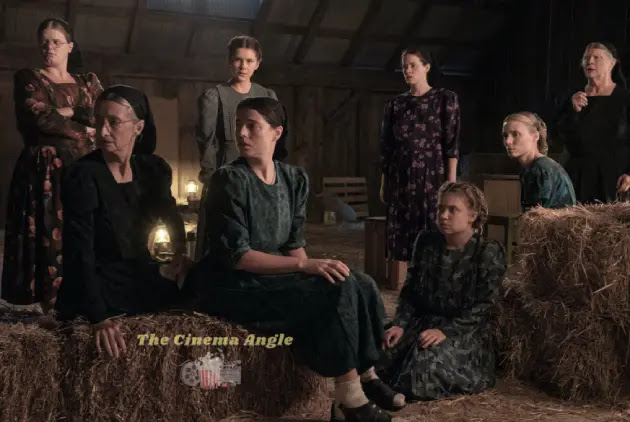Spoilers ahead...
Plot of Women Talking: A Debate Over Male Wrongdoings
Women
Talking is an adaptation
of Miriam Toews’ novel, based on a true story that revolves around an isolated
Mennonite religious community. In this community, generations of women, from
preteens to elders (even those over 60), have endured various abuses—assault,
beating, domestic violence, rape, and incest. Eventually, they decide that
enough is enough and cast votes on three options: 'Do Nothing,' 'Stay and
Fight,' or 'Leave.' When a tie occurs between the latter two options, two
families come together for a debate to discuss both possibilities.
August
(Ben Whishaw), a man whom the women trust, arrives at the village hayloft to
supervise the meeting and take minutes (notes). As the debate progresses, the
pros and cons of 'Stay and Fight' and 'Leave' are meticulously noted.
The two
debating families include Agata (Judith Ivey) and her daughters Ona (Rooney
Mara) and Salome (Claire Foy); and Greta (Sheila McCarthy) with her daughters
Mariche (Jessie Buckley) and Mejal (Michelle McLeod). Teenage daughters,
present mostly to inject humor, occasionally comment on the proceedings,
breaking the tension by saying, “This is so boring.” This may have been the
director's nod to a section of the audience feeling similarly. Unfortunately, I
shared that sentiment.
The Women Empowerment in the Movie
True to
its title, the film is dominated by dialogue among women. In several scenes,
when August tries to contribute more, he is shut down and told that he is there
only to listen, not to give his opinions. While I don’t mind a dialogue-heavy
narrative, the debate itself felt staged and inauthentic. The film attempts to
break tension with unwelcome cuts to children or moments of comedy among the
elders, such as a scene where a character says, “Looks like I am dying,” when
it’s merely her spectacles getting dusty.
At the
start of the film, there’s a note stating, “What follows is an act of female
imagination,” which makes me wonder if the conclusion of the debate and the
subsequent actions were fictional. It was hard to believe that so many women
could leave without their men—who had been abusing them—not noticing or
stopping them. Additionally, it was difficult to imagine how a transgender
individual could have survived in such a hostile environment.
Women Talking Has a Strong Start but Loses Momentum
The first
10-15 minutes of Women Talking are engaging, offering glimpses of a
world where only boys receive education, along with flashes of the women’s
suffering and an intriguing voting process. Even during the debate, a few lines
resonate, especially the one about forgiveness—“Forgiving someone can also mean
giving them permission to do the bad thing again.” Ona’s private conversation
with August, where she painfully asks, “Why does love have to be violent?” is
another standout moment. Some of the music tracks used to break the tension are
also well-placed.
Verdict on Women Talking—A Missed Opportunity
Women
Talking just didn’t work
for me. Most of the debate came across as pretentious or preachy, rather than
an authentic, constructive dialogue. Despite its well-intentioned message and
strong cast, the execution falls short.


No comments:
Post a Comment